10 Dirty Home Items You Should Clean Regularly

Cleaning our homes is a regular chore that we all undertake to keep our living spaces tidy and presentable. We vacuum the floors, scrub the countertops, and wipe down the surfaces. However, certain items in our homes often go overlooked when it comes to cleaning, and these items can harbor a surprising amount of dirt, bacteria, and viruses. To maintain a clean and healthy living environment, it is important to regularly clean these often neglected items.
From kitchen sponges and toothbrush holders to remote controls and refrigerator handles, these items can accumulate germs and pose a risk to our health. By incorporating regular cleaning of these items into our cleaning routines, we can help prevent the spread of bacteria and viruses in our homes. In this blog, we will discuss 10 dirty home items that you should clean more often and provide tips on how to effectively clean them.
Top 10 Items in Your Home You Need to Clean More Often
In our daily lives, we come into contact with numerous items in our homes that can harbor bacteria and viruses. By regularly cleaning these items, we can reduce the risk of illness and maintain a clean and healthy living environment. Here are the top 10 items in your home that you should clean more often:
- Kitchen sponges and dishcloths
- Computer keyboards and mobile phones
- Toothbrush holders
- Pet toys and bowls
- Coffee makers
- Bathroom faucets and showerheads
- Door handles and light switches
- Remote controls
- Makeup brushes and beauty blenders
- Refrigerator handles and drawers
Now, let’s dive deeper into each of these items and discuss why they are important to clean regularly.
1. Kitchen Sponges and Dishcloths
One of the dirtiest items in your kitchen is the dish sponge or cloth that you use to clean your dishes and countertops. These sponges and dishcloths can become breeding grounds for bacteria, especially when they come into contact with raw meat or are not properly cleaned and dried. Here are a few key points about why you should clean your kitchen sponges and dishcloths regularly:
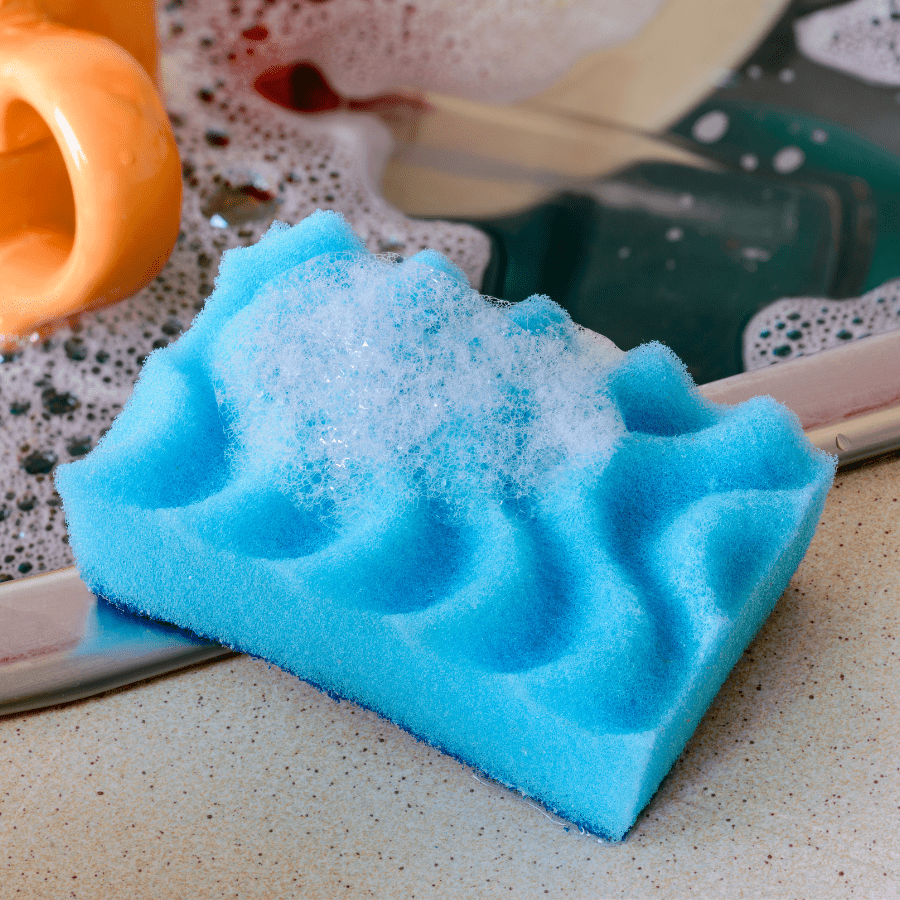
- Dish sponges can harbor bacteria such as Salmonella and E. coli, which can cause food poisoning.
- Moist sponges and dishcloths provide the perfect environment for bacteria and mold to grow.
- To effectively clean your dish sponges and dishcloths, you can microwave them for a minute to kill bacteria or soak them in a mixture of warm water and bleach.
- It is also important to replace your dish sponges and dishcloths regularly to prevent the buildup of bacteria and mold.
2. Computer Keyboards and Mobile Phones
In today’s digital age, many of us spend a significant amount of time using computer keyboards and mobile phones. These devices can accumulate dirt, crumbs, and bacteria over time, making them a breeding ground for germs. Here are a few key points about why you should clean your computer keyboards and mobile phones regularly:
- Crumbs and dirt can accumulate between the keys of your computer keyboard, providing a food source for bacteria.
- Studies have shown that computer keyboards can harbor bacteria such as Staphylococcus aureus and Escherichia coli.
- To effectively clean your computer keyboard, use a can of compressed air to dislodge dirt and debris, and then wipe the keys with a disinfectant wipe or a cloth dampened with rubbing alcohol.
- Mobile phones can also harbor bacteria, especially if they are frequently touched with dirty hands. To clean your mobile phone, use a disinfectant wipe or a cloth dampened with rubbing alcohol.
3. Toothbrush Holders
Toothbrush holders are often overlooked when it comes to cleaning, but they can harbor a significant amount of germs and bacteria. Here are a few key points about why you should clean your toothbrush holders regularly:
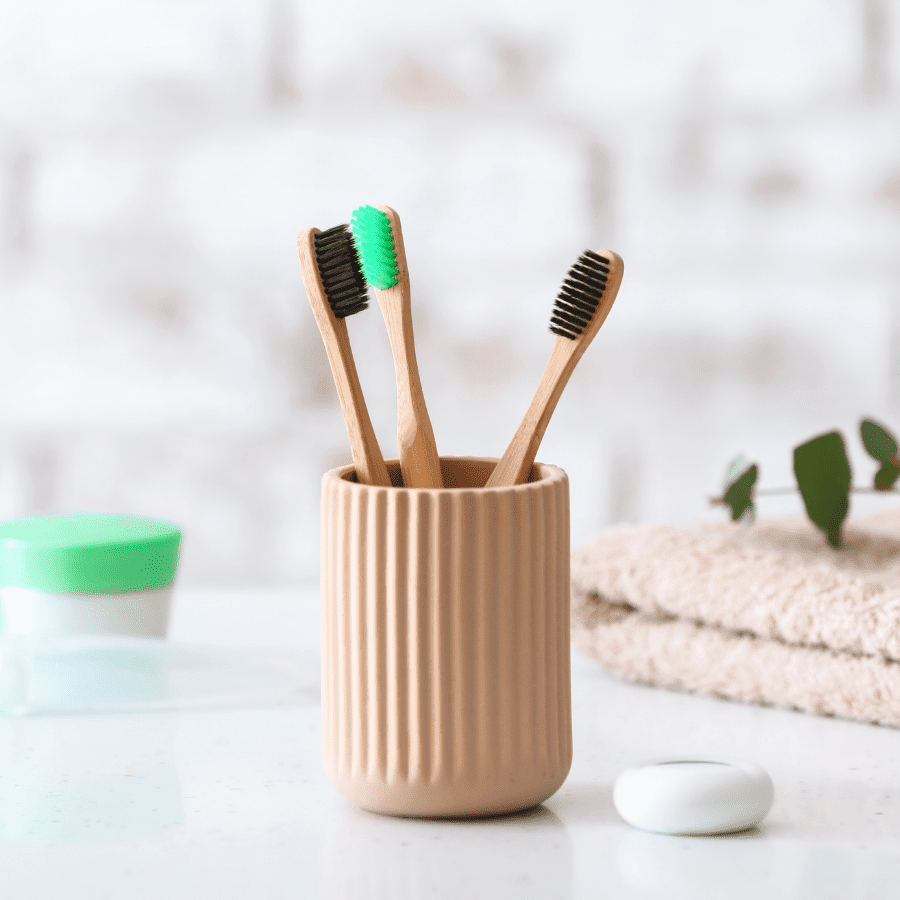
- Toothbrush holders can accumulate germs and bacteria from the moist environment of the bathroom.
- Mold can grow in toothbrush holders if they are not properly cleaned and dried.
- To effectively clean your toothbrush holder, you can soak it in a mixture of vinegar and water, or run it through the dishwasher.
4. Pet Toys and Bowls
If you have pets, it’s important to regularly clean their toys and bowls to prevent the spread of germs and bacteria. Here are a few key points about why you should clean your pet toys and bowls regularly:
- Pet toys and bowls can harbor bacteria, which can cause illness in both humans and pets.
- To effectively clean your pet toys and bowls, you can wash them in hot water with soap or run them through the dishwasher.
- Regularly cleaning your pet toys and bowls can help prevent the buildup of bacteria and ensure a clean and safe environment for your pets.
- It is also important to regularly replace your pet toys to prevent them from becoming a breeding ground for microbes.
5. Coffee Makers
Coffee makers are a staple appliance in many homes, but they can also be a breeding ground for mold and bacteria if not properly cleaned. Here are a few key points about why you should clean your coffee maker regularly:
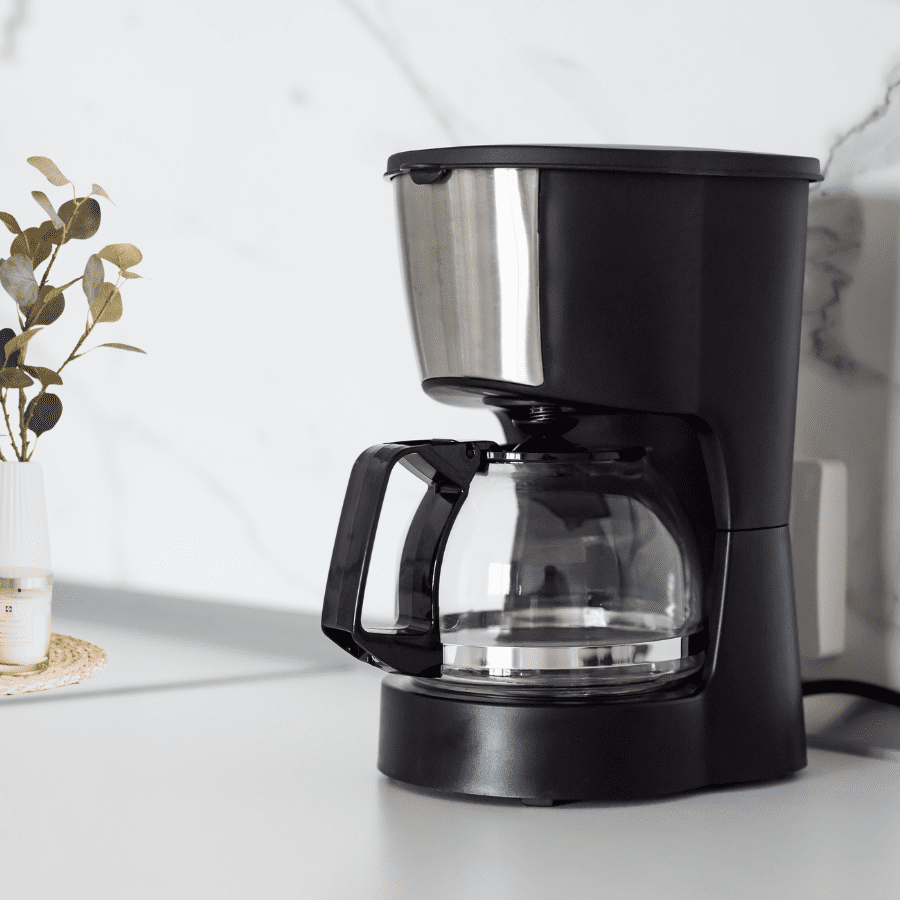
- Moisture and leftover coffee grounds can accumulate in the coffee maker, providing a conducive environment for mold and yeast growth.
- Mold and yeast can cause health issues if consumed.
- To effectively clean your coffee maker, you can run a mixture of vinegar and water through the machine and then follow up with a few cycles of clean water.
- Regularly cleaning your coffee maker can help prevent the buildup of mold and bacteria and ensure a clean and flavorful cup of coffee.
6. Bathroom Faucets and Showerheads
Bathroom faucets and showerheads are often neglected when it comes to cleaning, but they can accumulate limescale and bacteria over time. Here are a few key points about why you should clean your bathroom faucets and showerheads regularly:
- Limescale can build up on bathroom faucets and showerheads, affecting water flow and quality.
- Bacteria can thrive in the moist environment of the bathroom, especially in areas such as grout and faucet handles.
- To effectively clean your bathroom faucets and showerheads, you can use a mixture of vinegar and water to remove limescale and kill bacteria.
- Regularly cleaning your bathroom faucets and showerheads can help maintain water quality and prevent the buildup of bacteria.
7. Door Handles and Light Switches
Door handles and light switches are some of the most frequently touched surfaces in our homes, and yet they are often overlooked when it comes to cleaning. Here are a few key points about why you should clean your door handles and light switches regularly:
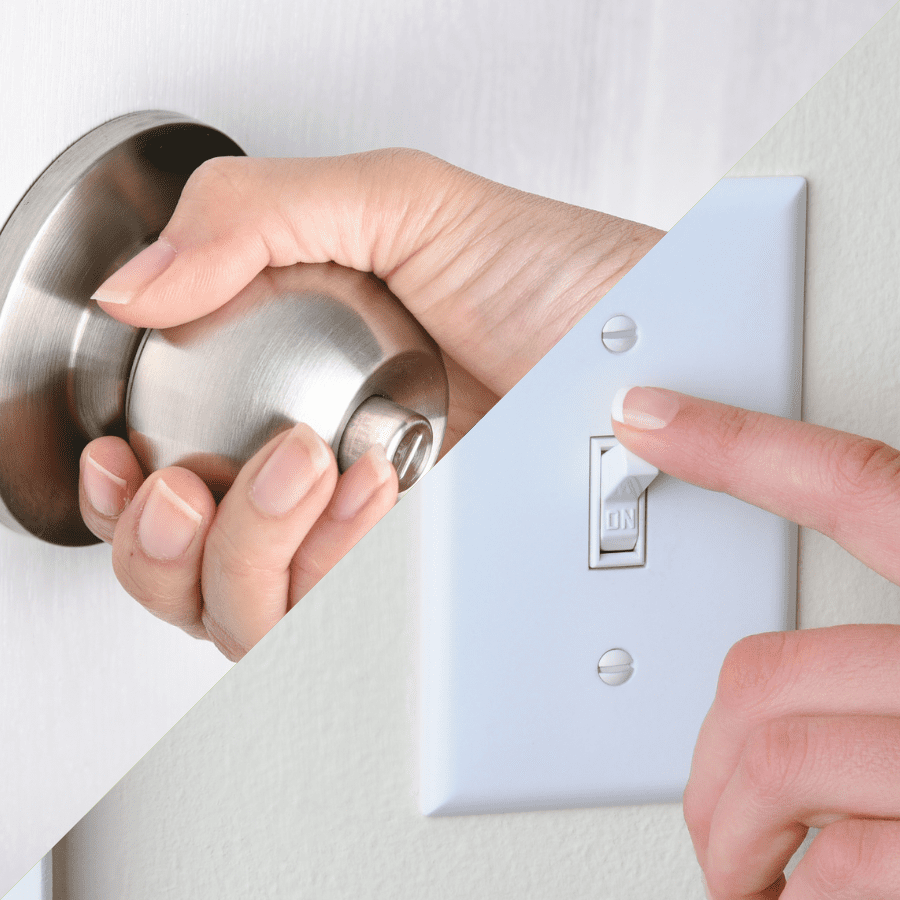
- Door handles and light switches can accumulate grime and bacteria from frequent use.
- High-touch surfaces such as door handles and light switches can be hotspots for the spread of germs.
- To effectively clean your door handles and light switches, you can use a disinfectant wipe or a cloth dampened with a disinfectant solution.
- Regularly cleaning your door handles and light switches can help prevent the spread of germs and maintain a clean and hygienic home.
8. Remote Controls
Remote controls are often used by multiple family members and can accumulate grime and bacteria over time. Here are a few key points about why you should clean your remote controls regularly:
- Remote controls can harbor bacteria and viruses, especially if they are frequently touched with dirty hands.
- Disinfecting remote controls is important to prevent the spread of germs.
- To effectively clean your remote controls, you can use a disinfectant wipe or a cloth dampened with a disinfectant solution.
- Regularly cleaning your remote controls can help maintain a clean and hygienic living room environment.
9. Makeup Brushes and Beauty Blenders
Makeup brushes and beauty blenders are essential tools in our beauty routines, but they can also harbor bacteria if not properly cleaned. Here are a few key points about why you should clean your makeup brushes and beauty blenders regularly:
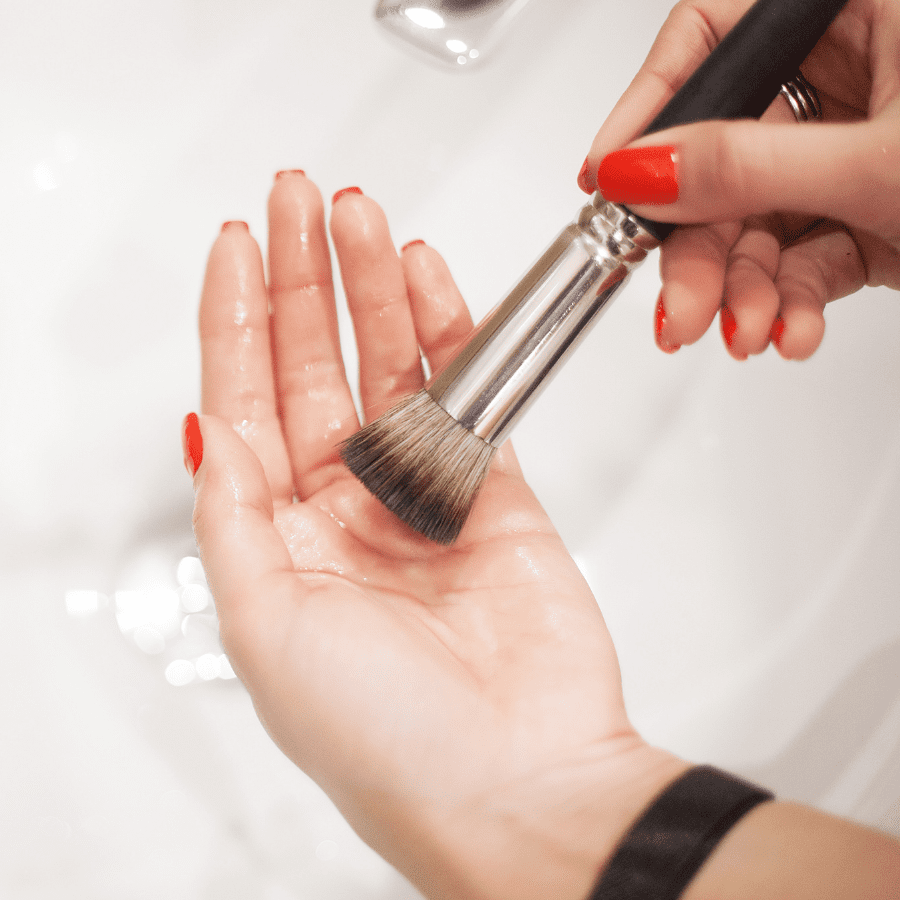
- Makeup brushes and beauty blenders can accumulate bacteria and dirt from regular use.
- Dirty brushes and blenders can cause skin and eye infections.
- To effectively clean your makeup brushes and beauty blenders, you can use a gentle cleaner specifically designed for makeup tools or wash them in the washing machine.
- Regularly cleaning your makeup brushes and beauty blenders can help prevent the buildup of bacteria and ensure a clean and hygienic makeup application.
10. Refrigerator Handles and Drawers
Refrigerator handles and drawers are frequently touched surfaces in our kitchens, and yet they are often overlooked when it comes to cleaning. Here are a few key points about why you should clean your refrigerator handles and drawers regularly:
- Refrigerator handles and drawers can accumulate dirt, grime, and bacteria from frequent use.
- Clean refrigerator handles and drawers can help prevent the transfer of bacteria to food.
- To effectively clean your refrigerator handles and drawers, you can use a cleaner specifically designed for refrigerators or a mixture of bleach and water.
- Pay attention to the crannies and hard-to-reach areas of your refrigerator handles and drawers to ensure a thorough cleaning.
Conclusion
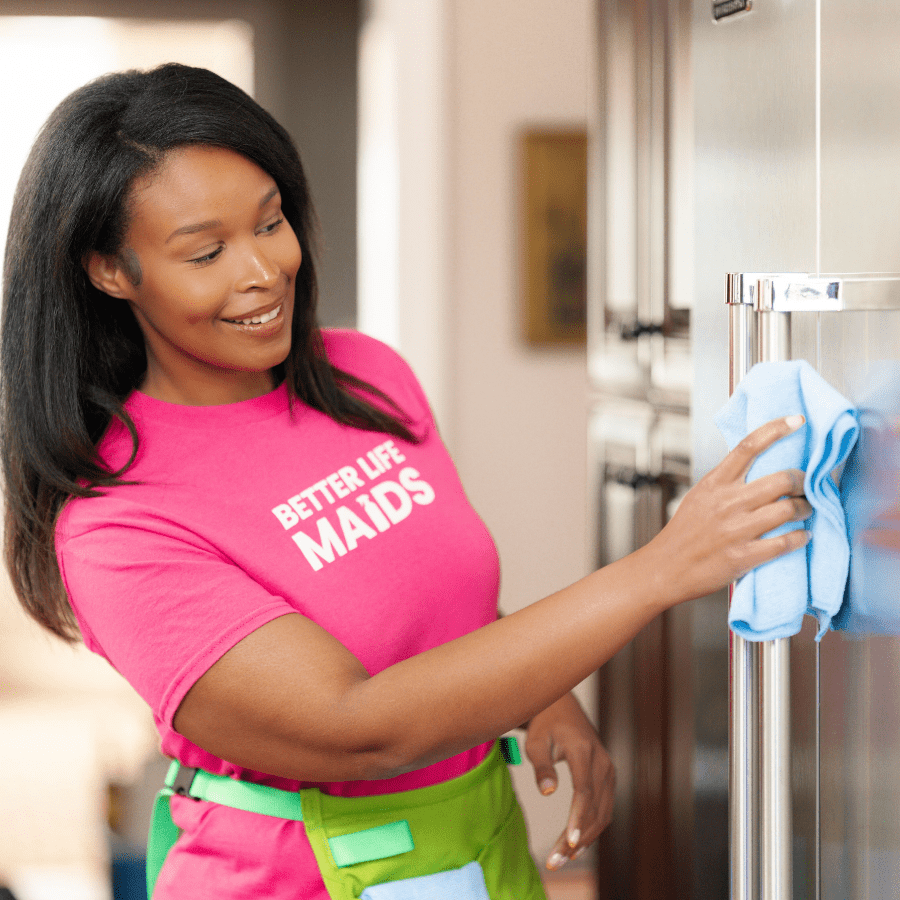
Regularly cleaning these often-overlooked home items is crucial for maintaining a healthy living environment. From kitchen sponges to refrigerator handles, keeping these areas clean can prevent the spread of germs and bacteria. Remember to use appropriate cleaning solutions and methods tailored to each item to ensure effective sanitation. By incorporating these cleaning routines into your schedule, you can create a safer and more hygienic home for you and your family. Stay proactive in maintaining cleanliness to promote a healthier living space for everyone.
Frequently Asked Questions
How often should I clean these items?
It is recommended to clean these items on a regular basis to prevent the buildup of germs and bacteria. Frequency of cleaning may vary depending on usage and personal preference, but a general guideline is to clean them at least once a week or as needed to maintain proper hygiene.
What are the best cleaning solutions for electronics like keyboards and mobile phones?
When it comes to cleaning electronics like keyboards and mobile phones, it’s important to use the right cleaning solutions to avoid damaging the devices. Disinfectant wipes or alcohol wipes with at least 60 percent ethanol or 70 percent isopropanol are effective at killing bacteria and viruses without leaving residue. A microfiber cloth can be used to gently wipe the surfaces without scratching them.
Can dishcloths be cleaned, or should they just be replaced?
Dishcloths are frequently used in the kitchen and can harbor bacteria and odors if not cleaned properly. They can be cleaned by soaking them in hot water with a small amount of bleach to kill bacteria. Alternatively, they can be washed in the washing machine with hot water and detergent. If dishcloths become heavily soiled or have a strong odor, it may be time to replace them.
Are there any natural cleaning solutions I can use for pet toys and bowls?
Yes, there are natural cleaning solutions that can be used for pet toys and bowls. A mixture of vinegar and hot water can be used to clean these items effectively. Vinegar is a natural disinfectant and can help remove dirt and bacteria. It is important to use non-toxic cleaning solutions when cleaning items that your pets come into contact with to ensure their safety.
How can I ensure my toothbrush holder remains germ-free?
To ensure your toothbrush holder remains germ-free, it should be cleaned regularly. You can clean it by placing it in the dishwasher or soaking it in a mixture of vinegar and hot water. After cleaning, make sure to rinse it thoroughly and allow it to air dry completely before placing toothbrushes back in the holder.
Do bathroom faucets require special cleaning products to remove limescale?
Bathroom faucets can develop limescale buildup over time, which can be unsightly and affect the water flow. While there are special cleaning products available for removing limescale, vinegar can be an effective and affordable alternative. Soaking a cloth or sponge in vinegar and scrubbing the affected areas can help dissolve and remove limescale buildup.